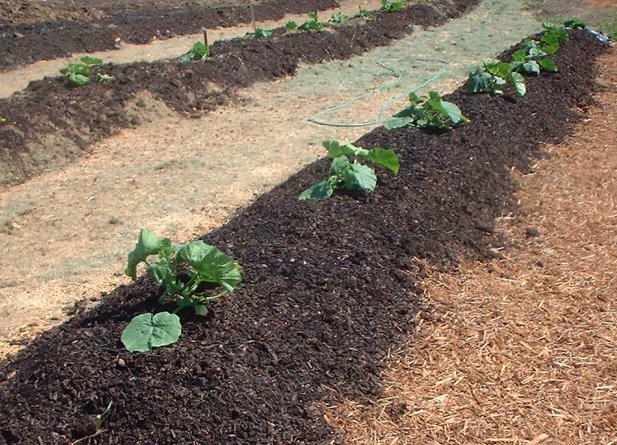 Biosolids applied to a pumpkin field. /Credit: CC-by-3.0/Red58bill
Biosolids applied to a pumpkin field. /Credit: CC-by-3.0/Red58bill
OLYMPIA – A bill launching a testing program for potential PFAS contamination in Washington’s food supply was signed Saturday by Gov. Bob Ferguson.
Senate Bill 5033, sponsored by Sen. Jeff Wilson, R-Longview, directs the state Department of Ecology to develop a program to test for “forever chemical” concentrations in fertilizers made from processed human waste. The department must provide guidance on biosolid testing requirements by July 1, 2026 and report findings to the Legislature before the 2030 session.
“This bill shows we are taking the problem seriously,” Wilson said. “PFAS compounds don’t break down and they can’t be remediated like other chemicals. We need to find ways to keep them out of our food supply, and the first thing we need to do is to determine whether contamination is a problem when biosolids are used as fertilizer for crops destined for human consumption.”
The measure highlights growing concerns with perfluoroalkyl and polyfluoroalkyl (PFAS) compounds, used in carpets, nonstick cookware, firefighting foam and other applications. The compounds resist water, oil and grease, but because they do not readily decompose in the environment, they can accumulate in the human body.
The federal Environmental Agency has already classified two PFAS compounds as hazardous substances and set contamination limits in drinking water. This year the agency concluded those compounds could pose a risk to human health when they contaminate sewage sludge used as fertilizer. The state also has begun regulating PFAS compounds in drinking water, firefighting foam and consumer products.
Wilson said he hopes the new law will help settle questions as to whether biosolids are safe for use on cropland. The bill also establishes an expert advisory committee including representatives from the farming community, toxicologists and the public utilities producing biosolids at sewage treatment facilities.










